Premium Only Content
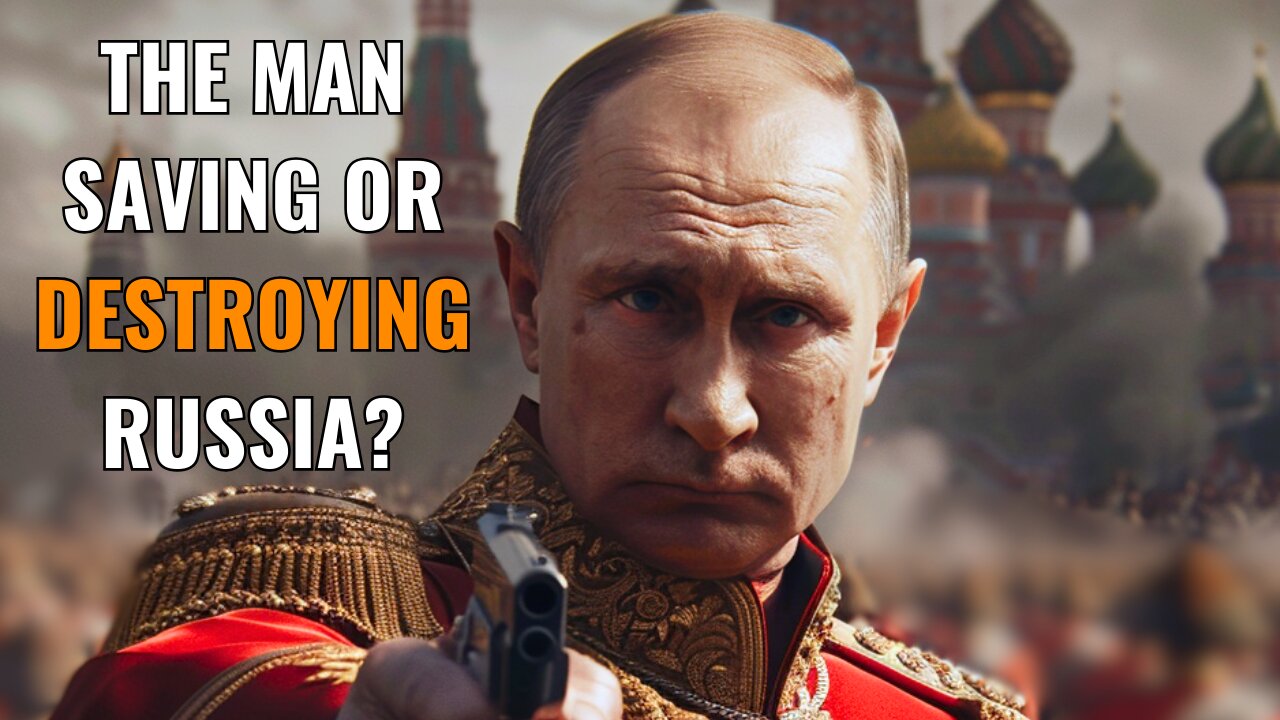
From the KGB to a New Tsar? - Vladimir Putin
From the KGB to the Kremlin, and operating from the Caucasus to Crimea and beyond, how and why did Vladimir Putin become the man he is today?
Born on October 7, 1952, Putin's early years saw an austere Soviet-era apartment, common for many of his generation.
His father, a decorated veteran of the Soviet Navy in World War II, and his mother, a factory worker, instilled in him the values of hard work and patriotism from a young age.
It wasn't all grim, though; Putin found an outlet in judo, a sport where discipline and strategy converge— traits that would define his later career.
His prowess in judo wasn't just about physical strength; it helped shape his determination and tactical thinking.
Pursuing higher education, Putin graduated from Leningrad State University with a degree in law, a foundation that would serve him well in the intricate world of politics and intelligence.
His legal acumen caught the eye of the KGB, marking the beginning of a 16-year stint as an intelligence officer, a role that took him from the shadows of East Germany back to the Soviet Union's crumbling facade.
The disintegration of the Soviet Union could have been a dead-end for many in the KGB, but Putin saw it as an opening.
Leaving the KGB in 1991, he ventured into the political arena of Leningrad, now St. Petersburg.
Under the wing of Anatoly Sobchak, the city's reformist mayor, Putin sharpened his political skills, navigating the treacherous waters of post-Soviet Russia with a blend of pragmatism and ruthlessness.
This was just the prologue.
From the KGB to the Kremlin, and operating from the Caucasus to Crimea and beyond, how and why did Vladimir Putin become the man he is today?
Born on October 7, 1952, Putin's early years saw an austere Soviet-era apartment, common for many of his generation.
His father, a decorated veteran of the Soviet Navy in World War II, and his mother, a factory worker, instilled in him the values of hard work and patriotism from a young age.
It wasn't all grim, though; Putin found an outlet in judo, a sport where discipline and strategy converge— traits that would define his later career.
His prowess in judo wasn't just about physical strength; it helped shape his determination and tactical thinking.
Pursuing higher education, Putin graduated from Leningrad State University with a degree in law, a foundation that would serve him well in the intricate world of politics and intelligence.
His legal acumen caught the eye of the KGB, marking the beginning of a 16-year stint as an intelligence officer, a role that took him from the shadows of East Germany back to the Soviet Union's crumbling facade.
The disintegration of the Soviet Union could have been a dead-end for many in the KGB, but Putin saw it as an opening.
Leaving the KGB in 1991, he ventured into the political arena of Leningrad, now St. Petersburg.
Under the wing of Anatoly Sobchak, the city's reformist mayor, Putin sharpened his political skills, navigating the treacherous waters of post-Soviet Russia with a blend of pragmatism and ruthlessness.
This was just the prologue.
From the KGB to the Kremlin, and operating from the Caucasus to Crimea and beyond, how and why did Vladimir Putin become the man he is today?
Born on October 7, 1952, Putin's early years saw an austere Soviet-era apartment, common for many of his generation.
His father, a decorated veteran of the Soviet Navy in World War II, and his mother, a factory worker, instilled in him the values of hard work and patriotism from a young age.
It wasn't all grim, though; Putin found an outlet in judo, a sport where discipline and strategy converge— traits that would define his later career.
His prowess in judo wasn't just about physical strength; it helped shape his determination and tactical thinking.
Pursuing higher education, Putin graduated from Leningrad State University with a degree in law, a foundation that would serve him well in the intricate world of politics and intelligence.
His legal acumen caught the eye of the KGB, marking the beginning of a 16-year stint as an intelligence officer, a role that took him from the shadows of East Germany back to the Soviet Union's crumbling facade.
The disintegration of the Soviet Union could have been a dead-end for many in the KGB, but Putin saw it as an opening.
Leaving the KGB in 1991, he ventured into the political arena of Leningrad, now St. Petersburg.
Under the wing of Anatoly Sobchak, the city's reformist mayor, Putin sharpened his political skills, navigating the treacherous waters of post-Soviet Russia with a blend of pragmatism and ruthlessness.
This was just the prologue.
-
 3:52
3:52
Simply Bitcoin
5 days agoTurning Water Into Bitcoin: Inside Itapu Dam
3.29K3 -
 1:26:58
1:26:58
The Quartering
2 hours agoRFK Impeachment, Erika Kirk TORCHES Candace, More Epstein Files Unsealed, Ilhan Omar Deported?
97.6K34 -
 1:12:19
1:12:19
DeVory Darkins
3 hours agoTrump GOES OFF in brutal rant during rally leaves Democrats stunned
113K88 -
 LIVE
LIVE
Putther
2 hours ago $0.44 earned🔴GTA ONLINE MANSION DLC IS OUT!!! SPENDING MILLIONS!!
79 watching -
 1:08:50
1:08:50
Sean Unpaved
3 hours agoAre CJ Stroud & Texans About To Make A SUPER BOWL RUN? | UNPAVED
22.8K2 -
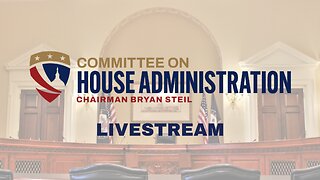 LIVE
LIVE
Committee on House Administration
1 day agoSubcommittee on Elections Hearing: “Examining Potential Updates to the NVRA”
35 watching -
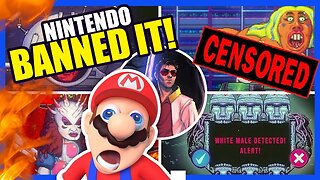 15:07
15:07
Clownfish TV
2 hours agoNintendo BANS Indie Game from Switch Because of POLITICS?! | Clownfish TV
9181 -
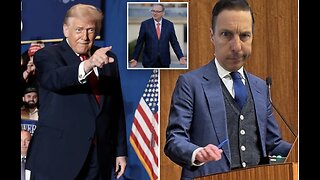 58:21
58:21
Jeff Ahern
1 hour agoNever Woke Wednesday with Jeff Ahern
7063 -
 1:04:49
1:04:49
Timcast
4 hours agoTrump Goes NUCLEAR At Rally, Demands Ilhan Omar Be DEPORTED
172K49 -
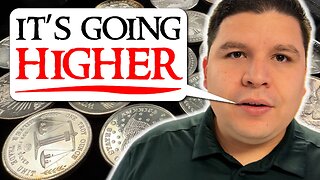 14:22
14:22
Silver Dragons
2 hours agoBullion Dealer Reacting to $60 Silver Price (Insane)
11.4K